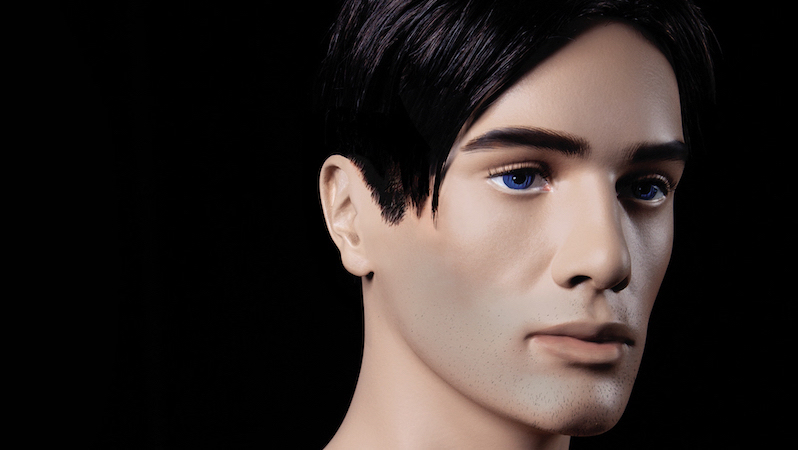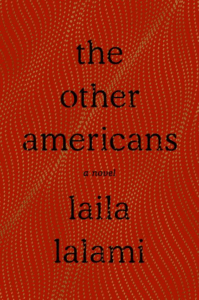
What have we got for you this week? Well, how about a handful of astute analyses of (deep breath): Ian McEwan’s Thatcherite Britain-set, retro-futurist novel; Tillie Walden’s queer utopian comic; Sally Rooney’s psychological portrait of Dublin Millennials; Laila Lalami’s immigrant family saga; and Isabella Hammad’s epic work of historical fiction?
Julian Lucas, in his New Yorker essay on McEwan’s Machines Like Me, calls the Booker Prize-winning author’s latest, “a witty and humane new novel,” and notes that “McEwan’s aim is to probe the moral consequences of what philosophers call ‘the problem of other minds.’ ”
Over at Vox, Constance Grady found Normal People, Sally Rooney’s all-conquering second novel, to be an “impossibly intellectual, impossibly tender, impossibly beautiful” balancing act that never fails.
In her fascinating Atlantic review of Laila Lalami’s powerful and timely tale of an immigrant family ruptured by tragedy, The Other Americans, Hannah Giorgis writes: “…it’s a particularly jarring read now, in the days following the New York Post’s dangerous decontextualization of U.S. Representative Ilhan Omar’s comments about Islamophobia, as well as after the mosque shootings in New Zealand that left 50 Muslim worshippers dead last month”
We also take a closer look at Christopher Benfey’s New York Times review of Isabella Hammad’s epic historical fiction debut, The Parisian (“Hammad has crafted an exquisite novel that delves back into the confusing past while remaining wholly anchored in the precarious present”), and Stephanie Burt’s New Yorker essay on Tillie Walden’s queer coming-of-age graphic comic, On a Sunbeam (“…vaultingly effective in its transitions between small-scale and large, between the deadly caverns under an exoplanet’s mountain and the look on a hopeful girl’s face”).
*
“Buyer’s remorse is a recurring theme in Ian McEwan’s witty and humane new novel, a retrofuturist family drama that doubles as a cautionary fable about artificial intelligence, consent, and justice. Though steeped in computer science, from the P-versus-NP problem to DNA-inspired neural networks, the book is not meant to be a feat of hard-sci-fi imagineering; McEwan’s aim is to probe the moral consequences of what philosophers call ‘the problem of other minds’ … McEwan’s penchant for moral geometry—perspectival riddles, insoluble questions of responsibility—dovetails with the recent prominence of A.I. ethics. From algorithmic bias and the advent of sex-robot brothels to the ‘existential risk’ that theorists like Nick Bostrom posit, we worry not just what robots might do to us but what we might do to them, to say nothing of what they might do to us because of what we already do to one another. A pressing question is whether a human mind could ever enter into a ‘meaningful’ relationship with an artificial consciousness … Why write a novel, in 2019, about a humanoid robot? Like the flying car, it’s a long-anticipated idea that, although not quite obsolete, has begun to feel curiously dated…McEwan is aware of this belatedness. There’s a sense in which Adam is supposed to be retro, the misleadingly familiar avatar of an inconceivable future. He is the algorithm made flesh, endowed with human frailties—longing, sadness, the need to urinate—the better to preach the Singularity’s good news to denizens of Thatcherite Britain. As with Christ, the incarnation entails tragedy and sacrifice.”
–Julian Lucas on Ian McEwan’s Machines Like Me (The New Yorker)
“… both so tender and so intellectual that I held my breath as I read it, waiting for the balancing act to fail. It never did. Never once does Normal People try to prove its intelligence with coldness. Never once does it allow its romance to overwhelm the clarity of its prose. It takes a knife to its central relationship, slicing it apart to examine its dysfunctional power dynamics and never flinching away from the mess it uncovers—but it also allows that relationship to feel genuine and meaningful and even sweet … it’s not necessarily a bad thing that Normal People has little life outside of its central relationship. The connection between Marianne and Connell is supposed to be all-consuming, so overwhelming that it almost annihilates everything around it. Of course everything outside of its boundaries would feel a little flat, a little less exciting in comparison. Reading Normal People, you can luxuriate in the romance of the love story. But you are also never allowed to stop analyzing its power dynamics, to stop thinking about who is subservient to whom, and why, and how. The miracle of this book is that the romance and the analysis aren’t in opposition to each other. Instead, each amplifies the other, bringing the whole to a roaring crescendo. It is impossibly intellectual, impossibly tender. Impossibly beautiful, too.
–Constance Grady on Sally Rooney’s Normal People (Vox)
“Perilous journeys in time and space form the crisscross weave of The Parisian, a deeply imagined historical novel with none of the usual cobwebs of the genre … In a novel closely attentive to watches and clocks and the claims of competing calendars, three kinds of time, in addition to the merely mechanical, unfold across The Parisian. There is the internal time of memory, spotlighted on Midhat’s efforts to salvage what he can from his tempestuous year in Montpellier. There is accordionlike narrative time: the nested flashbacks and temporal disjunctions of a sure-handed novelist. And, finally, there is historical time, the rise and fall of empires as Palestine, ‘diseased with desire for a nation,’ changes hands from the Ottoman Turks to the paternalistic British amid steadily mounting Jewish immigration from pogrom-ridden Europe … People who live between worlds, between identities, are prone to making mistakes. This balancing act of a novel, poised between languages, peoples and places, superstition and science, is compounded of misunderstandings … Isabella Hammad has crafted an exquisite novel that, like Midhat himself, delves back into the confusing past while remaining wholly anchored in the precarious present.”
–Christopher Benfey on Isabella Hammad’s The Parisian (The New York Times Book Review)

“The Other Americans is, on its face, a novel that traces the story of one immigrant family and the seemingly inexplicable tragedy that ruptures it. But through her many characters’ specific and overlapping perspectives, Lalami also questions the feasibility of any centralized American identity. None of the novel’s narrators, even those who are citizens, ever quite measures up to the expectations they feel their immediate community, or their country, has of them. They are too loud or too brown or too soft. Too different. Nobody is ever enough … Lalami weighs heavy questions: Will America ever live up to the dream it sells would-be immigrants around the world? Is it possible to belong in a country that so readily kills people like you? Who is sufficiently American? These are difficult considerations, and a less skilled author might have produced an overly didactic text in the hope of exploring them. But Lalami largely avoids this impulse by imbuing her characters with a vitality that bridges the gaps between their identities and their interiority. They occupy a range of different social positions, but Lalami’s characters most often read like people, not avatars of representation. They are funny, cantankerous, and affecting. They keep secrets from one another, and, most thrillingly, from themselves … The book was published in March and written well before then. But it’s a particularly jarring read now, in the days following the New York Post’s dangerous decontextualization of U.S. Representative Ilhan Omar’s comments about Islamophobia, as well as after the mosque shootings in New Zealand that left 50 Muslim worshippers dead last month.”
–Hannah Giorgis on Laila Lalami’s The Other Americans (The Atlantic)
“On a Sunbeam is at once a queer coming-of-age story, a story about how to salvage lost love and youth, and a multigenerational story about how to thrive in a society that does not understand who you are or what you can do. It is the kind of story that adults can and should give to queer teens, and to autistic teens, and to teens who care for space exploration, or civil engineering, or cross-cultural communication. It is also a story for adults who were once like those teens, and the kind of story (like the Aeneid, but happier) whose devotees might occasionally return to it, hoping for divine advice from a randomly chosen line, or panel, or page … Like all science-fictional utopias, On a Sunbeam feels imperfect, even (to quote Ursula K. Le Guin) ‘ambiguous.’ But it also feels magnificent: it’s a world in which many readers would want to live, and a way to envision solutions to real-life problems that seem intractable now. It’s a queer love story in a universe where benevolent authorities still get things wrong; it’s also, for all its spacecraft and planets and xenogeology and (eventually) aliens, a story that purists might label not as science fiction but as science fantasy. But such genre labels—though inevitable—seem beside the point. As always for Walden, even when she is writing and drawing pilots and engineers, the point is not how things work but how people feel, and what choices they help one another make. Comics critics and would-be comics sophisticates—especially the kind who spurn superheroes—may think we have to choose between realistic characters who experience permanent loss and change, on the one hand, and escape, sublimity, and sheer wonder, on the other. Those sophisticates are wrong. On a Sunbeam is not the first American science-fiction comic to say so (consider Finder, or Saga), but it may be the most consistently beautiful, the most self-assured, the one with the best love story, and the one most vaultingly effective in its transitions between small-scale and large, between the deadly caverns under an exoplanet’s mountain and the look on a hopeful girl’s face.”
–Stephanie Burt on Tillie Walden’s On a Sunbeam (The New Yorker)

